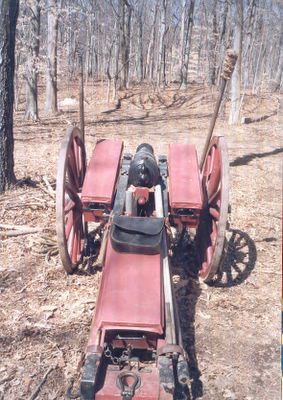Breaking News: Major rebel stronghold captured; 5000 American troops surrender
Bet I fooled you. This news has nothing to do with Iraq or Afghanistan. In fact, it's about something that happened 225 years ago. It's "breaking" because it's probably news to 999 of 1000 Americans that on May 12, 1780, at Charleston, South Carolina, the United States surrendered approximately 5000 soldiers to the British army of General Henry Clinton.
The men surrendering were thought of as "rebels" to the Crown forces. In fact, they were the first "Americans," though many still spoke with the accent of their native lands -- Ireland, Scotland, England, Germany, France, Wales, Africa and others.
Virginia lost almost her entire Continental Line in the surrender. Several weeks later Banastre Tarleton -- "Bloody Ban" -- caught the remainder of Virginia's troops and slaughtered them in the battle that made his name synonymous with brutality -- the Waxhaws "Massacre." If you want to learn more about the American Revolution in the South and have not read John Buchanan's "Road to Guilford Courthouse," do so. It describes the fall and resurgence of the rebel cause in the war's later years. Not many folks appreciate that the American Revolution was won long after the Declaration of Independence was signed, after Washington crossed the Delaware, after Valley Forge, and that it was won in the South.
This website describes a reenactment of the seige and battle of Charleston that will take place this upcoming weekend.


The men surrendering were thought of as "rebels" to the Crown forces. In fact, they were the first "Americans," though many still spoke with the accent of their native lands -- Ireland, Scotland, England, Germany, France, Wales, Africa and others.
Virginia lost almost her entire Continental Line in the surrender. Several weeks later Banastre Tarleton -- "Bloody Ban" -- caught the remainder of Virginia's troops and slaughtered them in the battle that made his name synonymous with brutality -- the Waxhaws "Massacre." If you want to learn more about the American Revolution in the South and have not read John Buchanan's "Road to Guilford Courthouse," do so. It describes the fall and resurgence of the rebel cause in the war's later years. Not many folks appreciate that the American Revolution was won long after the Declaration of Independence was signed, after Washington crossed the Delaware, after Valley Forge, and that it was won in the South.
This website describes a reenactment of the seige and battle of Charleston that will take place this upcoming weekend.



<< Home